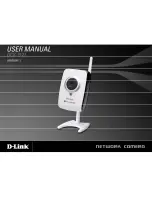
58
Wave User Manual
Version 4
12
Auto Cal and Sizing Methods
Conventional ultrasonic techniques have a wide variety of methods for flaw sizing Wave
offers all of the most popular methods:
DAC
,
TCG
,
AWS
,
DGS
,
AWS
,
API, T-log
and
Auto
Cal
.
12.1
Auto Cal
Auto Cal
provides automatic calibration of sound velocity and transducer zero. In order
to achieve a proper calibration, two factors must be known: the velocity of sound in the
material under inspection, and the offset of the transducer caused by wear face and
phase shifts.
The
Auto Cal
automates this process so that only two readings are required, one on the
thin sample and one on the thick sample. The Wave then sets the
Velocity
and
Probe
Zero
. This
Auto Cal
operation must be repeated any time the test material is changed
(velocity) or the transducer is changed (zero).
Auto Cal
.
12.2
DAC
One of the many ways to perform echo evaluation is by means of the
distance-amplitude
correction
(DAC). DAC curves use a series of reference echoes from a reference block
having artificial flaws. Due to sound attenuation on materials and beam spread while
using angle probes, echo heights of same-sized reflectors are different at distinct depths
(sound path).
12.2.1
Create a DAC Curve
With the help of a calibration block, you can set a DAC curve by clicking on the
Sizing
menu. Then, click on
DAC
. Before creating a new DAC curve, you can set the Reference
Amplitude (% of FSH), configure the range size (in mm/in) and enable or disable the
Split
DAC
function.
Couple your probe with your standard block and try to maximise the echo from the first
reflector. Depending on your range size and the sound path associated with your
reflector, the refracted echo can be located outside of the reference window. You can
move the reference window (forward/backward) through the A-Scan until it encompasses
the echo; simply click on the touch panel. You can also enlarge or reduce the window
width by directly clicking on the window and then adjusting it according to your needs.














































